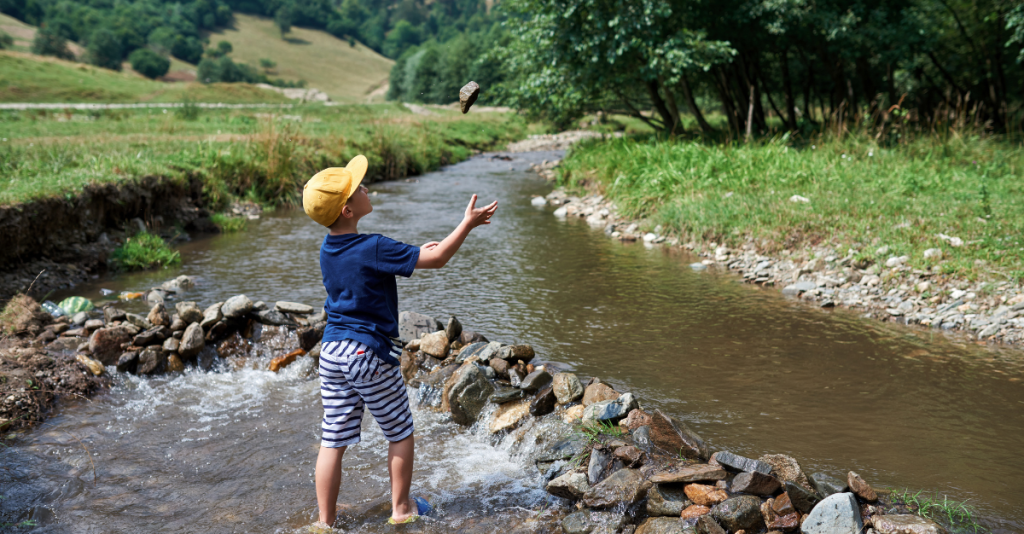
07 Dec Exploring the Wonders of Nature: Early Childhood Development Through Outdoor Adventures

With its vast and captivating landscapes, nature provides an immersive playground for young minds in the lower primary school years. Beyond the classroom walls, outdoor adventures become more than play; they form an integral part of early childhood development, profoundly shaping young learners. In this exploration, we unravel the wonders of nature and how outdoor adventures contribute to the holistic development of children in their formative years.
1. Physical Development:
Outdoor adventures invite lower primary school children to engage in active play, promoting physical development. From running and climbing to jumping and balancing, these activities enhance gross motor skills and contribute to overall physical well-being. Nature’s diverse terrain provides a natural setting for children to explore their physical capabilities in a dynamic and unstructured environment.
2. Cognitive Growth:
Nature acts as a rich tapestry for cognitive development. Lower primary school children immersed in outdoor adventures encounter a plethora of stimuli – from the shapes and colours of flora to the sounds of birds and the feel of different textures. This sensory richness fosters cognitive growth, stimulating observation, pattern recognition, and problem-solving skills.
3. Curiosity and Inquiry:

The great outdoors sparks curiosity and a sense of inquiry in young minds. As lower primary school children explore nature, they encounter a myriad of intriguing phenomena – from insects and plants to changing weather patterns. This curiosity lays the groundwork for a lifelong love of learning, encouraging children to ask questions, seek answers, and develop a deeper understanding of the world around them.
4. Emotional Well-Being:
Nature has a profound impact on emotional well-being. Outdoor adventures provide lower primary school children with opportunities for unstructured play in a calming environment. Nature’s serenity fosters emotional resilience, reduces stress, and promotes a positive mindset. The joy and freedom experienced in outdoor play create lasting memories and a foundation for emotional health.
5. Social Development:

Outdoor adventures often involve group activities, nurturing social development in lower primary school children. Whether collaborating on a nature scavenger hunt or building a makeshift shelter, these experiences teach teamwork, communication, and cooperation. Nature becomes a backdrop for shared experiences, fostering positive social interactions.
6. Appreciation for the Environment:
Experiencing nature firsthand instils a deep appreciation for the environment. Lower primary school children develop a sense of responsibility towards the natural world as they witness the beauty and interconnectedness of ecosystems. This early connection lays the foundation for environmental stewardship and a sense of responsibility towards the planet.
7. Imaginative Play:
Nature serves as the perfect canvas for imaginative play. Lower primary school children can transform a simple grove of trees into a magical forest or a pile of rocks into a fortress. Outdoor adventures encourage imaginative play, allowing children to create narratives, explore different roles, and develop creativity in an unstructured and open-ended environment.
8. Risk-Taking and Resilience:
Outdoor adventures inherently involve an element of risk, providing lower primary school children with opportunities to navigate challenges and develop resilience. Whether climbing a tree or crossing a small stream, these experiences teach children to assess risks, make decisions, and bounce back from setbacks – essential skills for personal growth.
9. Connection with Seasonal Cycles:
Engaging in outdoor adventures allows lower primary school children to connect with the natural rhythms of seasonal cycles. Observing changes in the environment, such as the blooming of flowers in spring or the falling of leaves in autumn, enhances their awareness of the passage of time and the cyclical patterns of nature.
10. Parental and Community Involvement:
Outdoor adventures create parental and community involvement opportunities in lower primary school children’s education. Family nature walks, community clean-up activities or outdoor learning events foster a shared responsibility for a child’s early development. Involving parents and the community creates a collaborative approach to supporting children’s growth.
CONCLUSION

In conclusion, exploring the wonders of nature through outdoor adventures is more than a recreational pursuit for lower primary school children. It is a gateway to holistic development, encompassing a child’s physical, cognitive, emotional, and social growth. As educators and parents embrace the great outdoors as a natural classroom, they provide young learners with an enriching environment that nurtures their innate curiosity, resilience, and love for the world around them.


